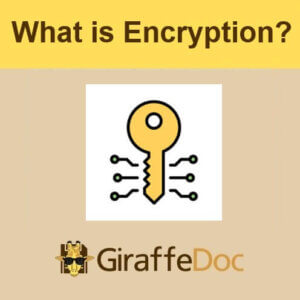Email Security Concerns
Amidst the pervasive use of digital communication tools, email remains a cornerstone for sharing information across various sectors. However, its widespread adoption also unveils notable shortcomings in safeguarding sensitive data. Despite its ubiquity, email lacks the robust security measures necessary to protect confidential information adequately. In this article, we delve into the inherent risks associated with relying on email for secure data transmission. By highlighting these limitations, we aim to underscore the importance of seeking alternative solutions for safeguarding sensitive information effectively in today’s interconnected digital landscape.
Email Vulnerabilities
Email, while convenient, is inherently vulnerable to security breaches due to its lack of robust encryption and authentication measures. Messages transmitted via email are susceptible to interception and unauthorized access, posing significant risks to the confidentiality and integrity of sensitive information. As a result, relying solely on email for transmitting sensitive data can expose individuals and organizations to potential data breaches and privacy violations.
- Lack of end-to-end encryption:
Most email services do not provide end-to-end encryption by default. This means that while the email may be encrypted during transit between servers, it can be accessed and read by the email service provider or administrators who have access to the servers. This creates a potential vulnerability for sensitive information. - Vulnerability to interception:
Email messages are transmitted over the internet and can be intercepted by attackers who have access to the network traffic. Without encryption or additional security measures, the content of the email can be easily accessed, compromising the confidentiality of sensitive information. - Storage on multiple servers:
Emails are typically stored on multiple servers as they travel from the sender to the recipient. This increases the risk of unauthorized access to sensitive information, as these servers may be maintained by different entities or located in different jurisdictions with varying security standards. - Phishing and spoofing attacks:
Email is a common target for phishing attacks, where attackers impersonate trusted entities to deceive recipients into revealing sensitive information or clicking on malicious links. These attacks can be highly effective, leading to the unauthorized disclosure of sensitive data. - Lack of sender and recipient verification:
Email protocols do not enforce strong mechanisms for verifying the identities of senders and recipients. This allows malicious actors to impersonate legitimate users, leading to the potential exchange of sensitive information with unauthorized parties. - Persistent storage and backups:
Emails can be stored indefinitely in backups or in the recipient’s mailbox, even after deletion from the sender’s account. This poses a risk in cases where sensitive information was included in the email, as it remains accessible even if the sender intended for it to be removed.
Email Alternatives
Encrypted messaging apps like Signal and WhatsApp offer end-to-end encryption for secure communication, but it’s essential that both parties communicating have the same app for encryption. Virtual data rooms like Intralinks and SecureDocs are tailored for secure document sharing in corporate settings, but experience user abandonment issues with their customer portal interface. Each of these alternatives offers unique features and levels of security, allowing users to choose the solution that best fits their specific needs. However, GiraffeDoc stands out with its comprehensive security features and user-friendly interface, making it a top choice for individuals and businesses seeking reliable protection for sensitive data. Unlike email, GiraffeDoc provides a secure file sharing platform equipped with end-to-end encryption and stringent access controls. With GiraffeDoc, users can securely share sensitive documents without the risk of interception or unauthorized access. Its intuitive interface and robust security features make GiraffeDoc an ideal solution for safeguarding sensitive information while ensuring seamless collaboration. By embracing GiraffeDoc, individuals and organizations can mitigate the inherent risks of email and uphold the highest standards of data security and privacy.
While email providers have implemented some security measures such as encryption during transit and spam filters, these measures may not provide sufficient protection for highly sensitive information. Therefore, alternative methods such as encrypted messaging platforms, secure file-sharing services, or secure portals should be considered for secure communication of sensitive information. These alternatives often offer stronger encryption, better authentication mechanisms, and more stringent access controls to safeguard sensitive data.





